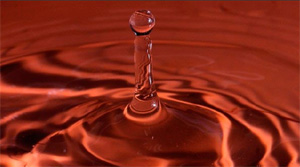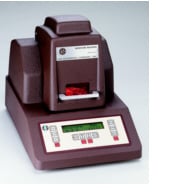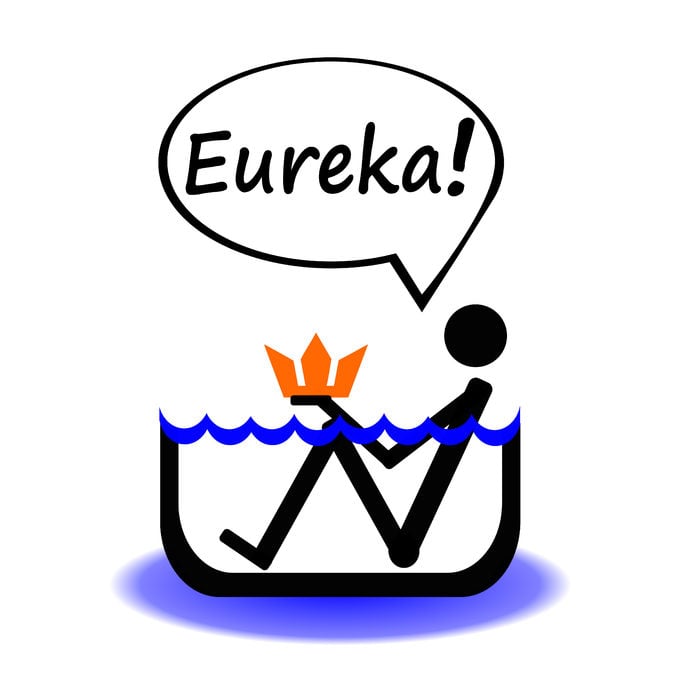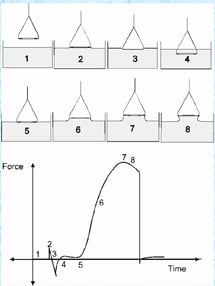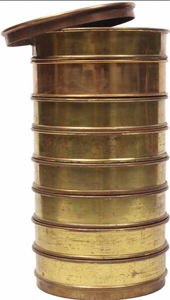One quiet night, I was musing over moisture analysis and how easy it is to do using loss-on drying. Little did I know what was in store.
Art Gatenby
Recent Posts
Loss-On-Drying Moisture Analysis and Other Moisture Mysteries Part 1
Posted by Art Gatenby on Apr 21, 2020 3:52:00 PM
Topics: Evaporation, Moisture Analysis, Moisture Testing, Loss-On-Drying, Moisture, moisture balance, moisture content
We get the same two questions almost every week about the CSC Bostwick Consistometer:
1) What angle do I use to set it up?
2) How do I level the Consistometer?
Principle of Operation
The principle of the CSC Bostwick Consistometer is based on the slump cone. In this procedure, a cone is filled with the material to be tested. It is then set on a level surface with the open area facing downward. The cone is pulled away and after a fixed time, the amount that the material slumped is measured. The thicker the material, the less slumping occurs.
Topics: "Ask Art", Bostwick Consistometer, Consistency, Liquid Properties, Bostwick, consistency vs viscosity
Topics: "Ask Art", Newtonian Fluid, Measure Viscosity, Viscometers, Viscosity
Last week, as I was reflecting on a recent moisture content problem, I recalled our series “Loss-on Drying and Other Moisture Mysteries.” In that series I examined moisture chemistry in products. However, I did little to define moisture content.
Topics: Bound Moisture, Free Moisture, Moisture Analysis, Water Activity, Moisture Testing, Karl Fischer, Karl Fischer Titration, Moisture
“How Many Ways are there to Measure Moisture?”
That is a recurrent question in early discussions about moisture measurement problems. Is frequently asked in connection with specific products and applications. This is a basic primer on the main techniques.
Most Used Methods to Measure Moisture Content
There are four core methods. They include the use of heat, chemicals, electrical properties and electrro magnetic phenomena.
Topics: Moisture
Regularly I’m asked the question; “How accurate is this moisture balance?”
The questioner asks for the answer in terms of percent (%) moisture. When I answer “it depends”, I always get the unspoken response, “Why did I ask this stupid idiot?”
Absolute Measurement
When you ask about the accuracy of something like weight or temperature the answers are straight forward and relate to the instruments' precision. For example 25 grams or 50 degrees plus or minus (+/-) 0.1 gram or 1/2 degree.
Percent is Relative
When you ask the question of how accurate is my percentage reading, the answer becomes complicated. It’s complicated because percentage (%) is a relative term. For example, the answer for the result of a Loss on Drying (LOD) moisture test, is based on the size of the sample you use.
Using the example of a LOD moisture test we can understand the concept. The result of this type of test is calculated by subtracting the weight of the sample at the end of the test from the weight of the sample at the beginning of the test. This difference is divided by the initial weight of the sample. This procedure produces a % moisture result.
Sample Size
In the following analysis, the implication s of sample size and instrument precision will be illustrated. This will be based on a sample that has 23.5% moisture and an electronic LOD moisture balance that has a sensitivity of 0.001 grams and repeatability of ± .005 grams.
Sample Analysis
Topics: Moisture Analysis, Moisture Testing, CSC Digital Moisture Balance, Loss-On-Drying, Moisture, moisture balance, instrument accuracy
Particle Size Analysis— Why? [Garden Stones to Micron Dust]
Posted by Art Gatenby on Jun 27, 2019 8:40:00 AM
In past ramblings on particle size analysis we have touched on shakers, ASTM standards, sieve checking, separating small particles, inhibitors like static charges and how to get sieve tests done. A couple of things that we rarely addressed.
Read MoreTopics: Sieve Shakers, Particle Size Analysis, Sieve Testing, Quiet sieve shakers, micron particles, nanometer particles, laser diffraction, segmentation
The first recorded application of density measurement was for fraud detection. The density measurement concept then expanded to encompass determination of material composition and assessment of product quality.
Read MoreTopics: density, oscillating u-tube, liquid density, hydrometer
Surface Tension by duNouy Rings or Wilhelmy Plates – Which to Choose?
Posted by Art Gatenby on Jul 16, 2018 5:34:18 PM
When tempted to think I know all there is about surface tension measurement, further information brings me back to earth. I’m conversant with the principal applications: surfactant analysis, plating, detecting contaminants, development of ink and the like. I have assisted customers to set up and calibrate duNouy Ring tensiometers for most applications -- all the while taking for granted that the Ring technique was the method of choice -- with only infrequent questions arising about Wilhelmy Plate tensiometers.
Topics: Wilhelmy Plates, duNouy Rings, Tensiometer, Surface Tension, interfacial surface tension, Liquid Properties, surface tension instruments, surface tension analysis, Digital tensiometer, automatic Tensiometer
Do You Re-Certify? Compare with a Master Stack? Check with Calibration Samples?
What Does Recertification Give?
The ASTM E-11 committee has done a great job of establishing three levels of testing. These levels show the probability of a sieve’s mesh to be within the permissible variations. These variations relate to the size of openings in wire-cloth used for test sieves.
Read MoreTopics: Sieve Shakers, Mid-Point Sieves, ASTM, Particle Size Analysis, Sieve Calibration, Sieve Certification, Sieve Testing, Sieving Process, Quiet sieve shakers, RoTap, sieving, test sieve equipment, sieve mesh




